
Who‘s in charge now?

Who‘s in charge now?
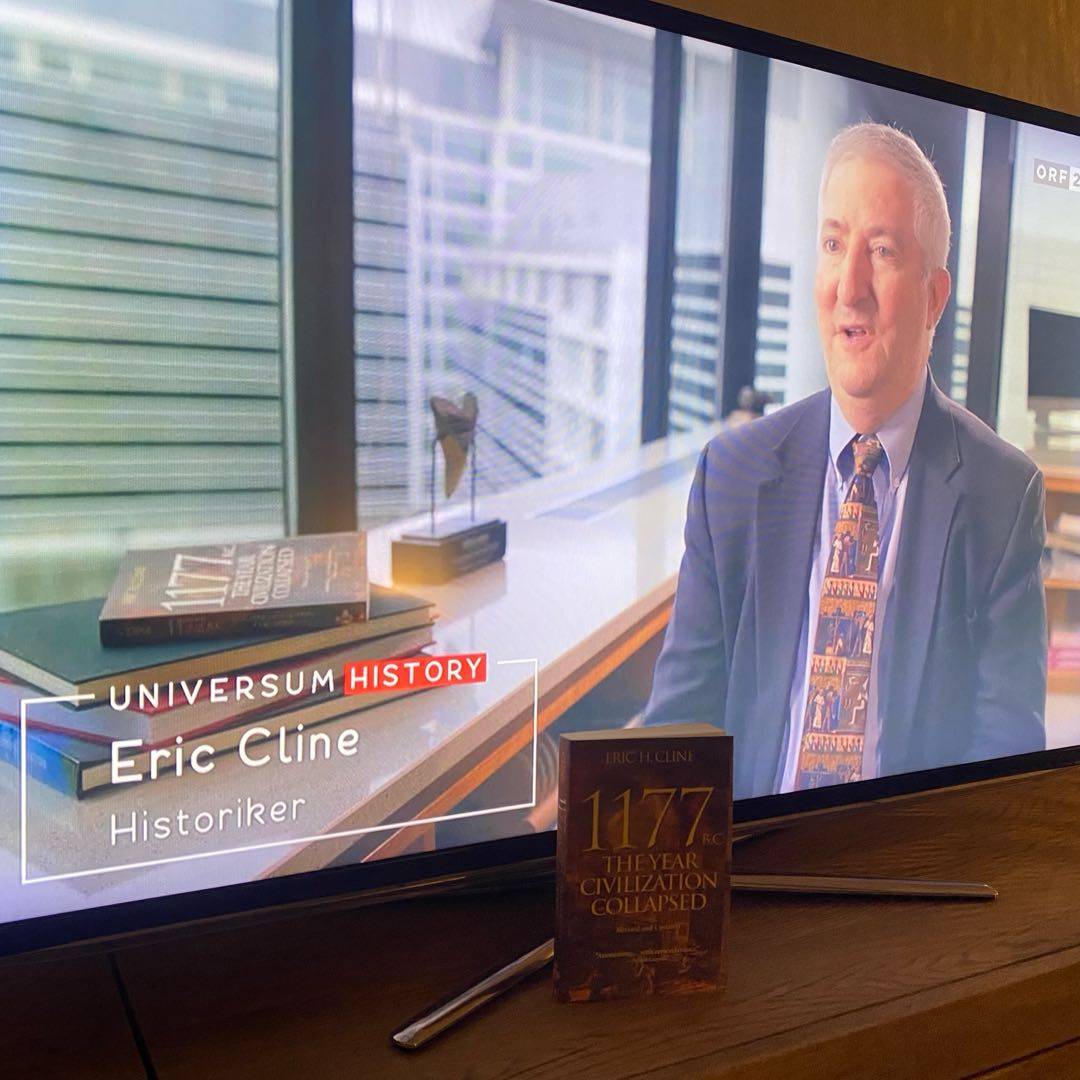
The moment you realize you are watching a documentary about a book you own and have read. 💪💪💪
Readable, but not in depth. Does pretty much exactly what it says on the tin.
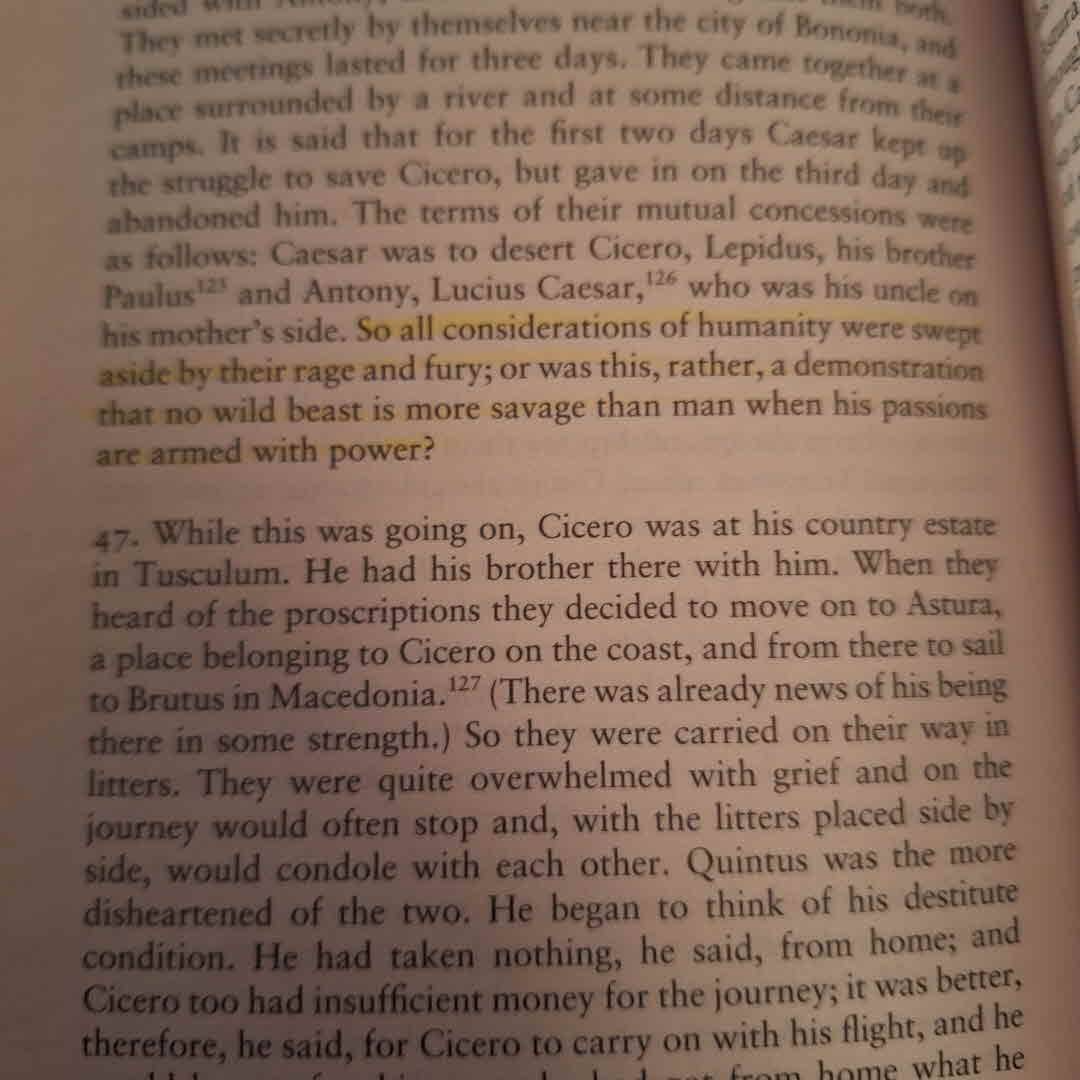
"So all considerations of humanity were swept away by their rage and fury; or was this, rather, a demonstration that no wild beast is more savage than man when his passions are armed with power?"
Plutarch, "Fall of the Roman Republic"
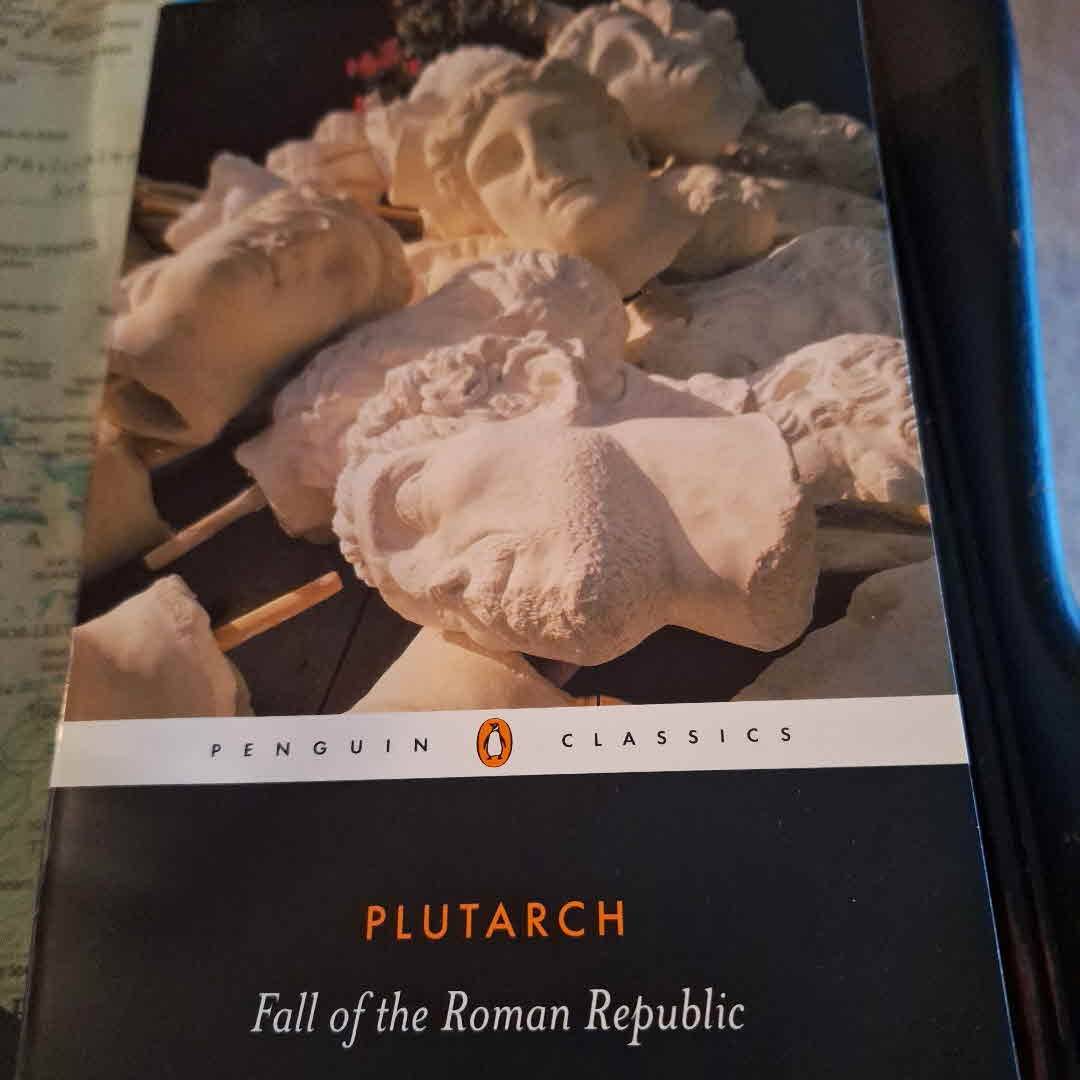
I thought this to be interesting. While I have learned about most of the covered material before, it was interesting seeing how an ancient author wrote on it. It was also interesting seeing Plutarch's commentary on certain issues. Main downside is that this contains half of Plutarch's "Parallel Lives" where he compares a Greek figure with a Roman, then does a summary of the two. As a result, it can be slightly difficult to follow the summaries.
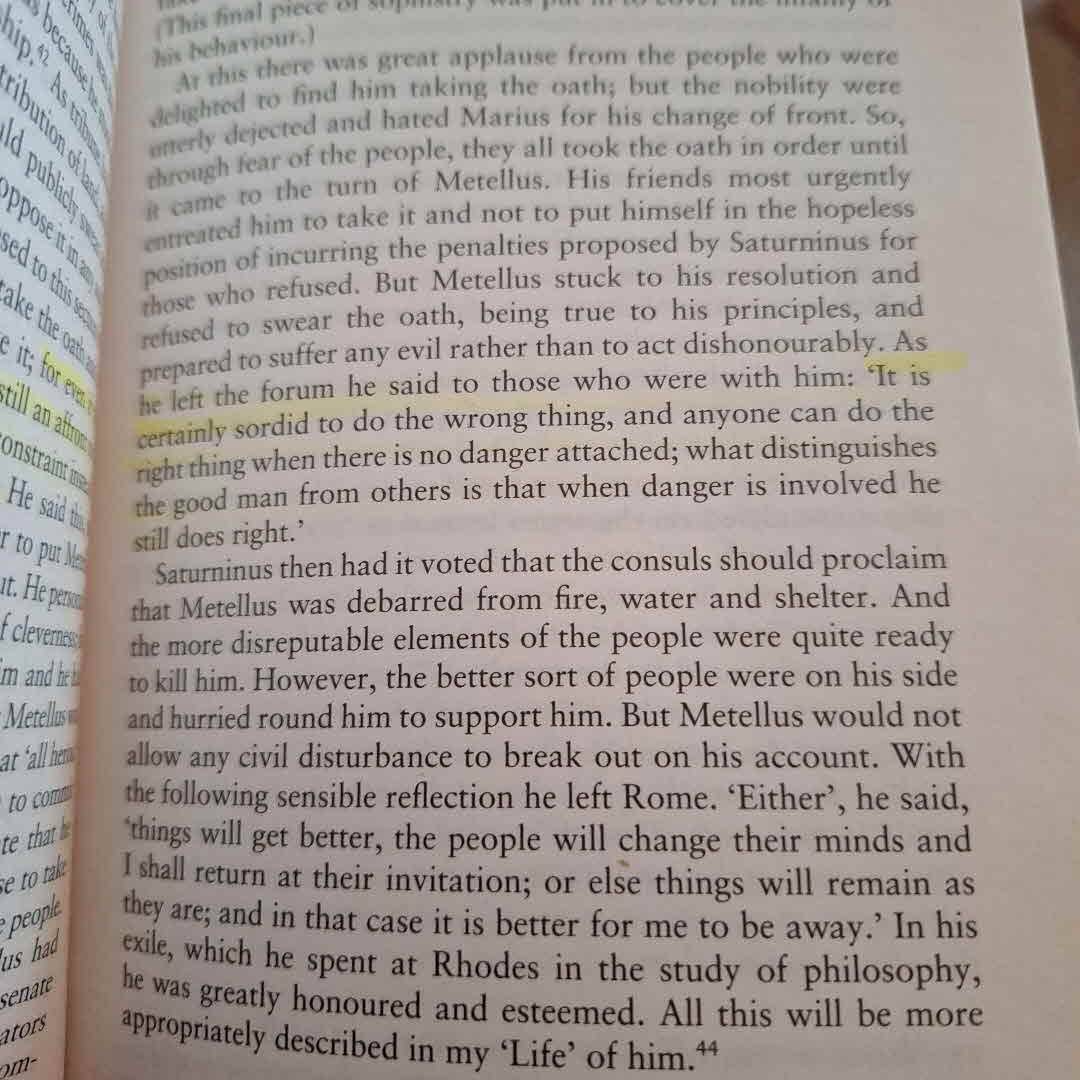
"As he left the forum he said to those who were with him: 'It is certainly sordid to do the wrong thing, and anyone can do the right thing when there is no danger attached; what distinguishes the good man from others is that when danger is involved he still does right."
-Plutarch, "Fall of the Roman Republic"
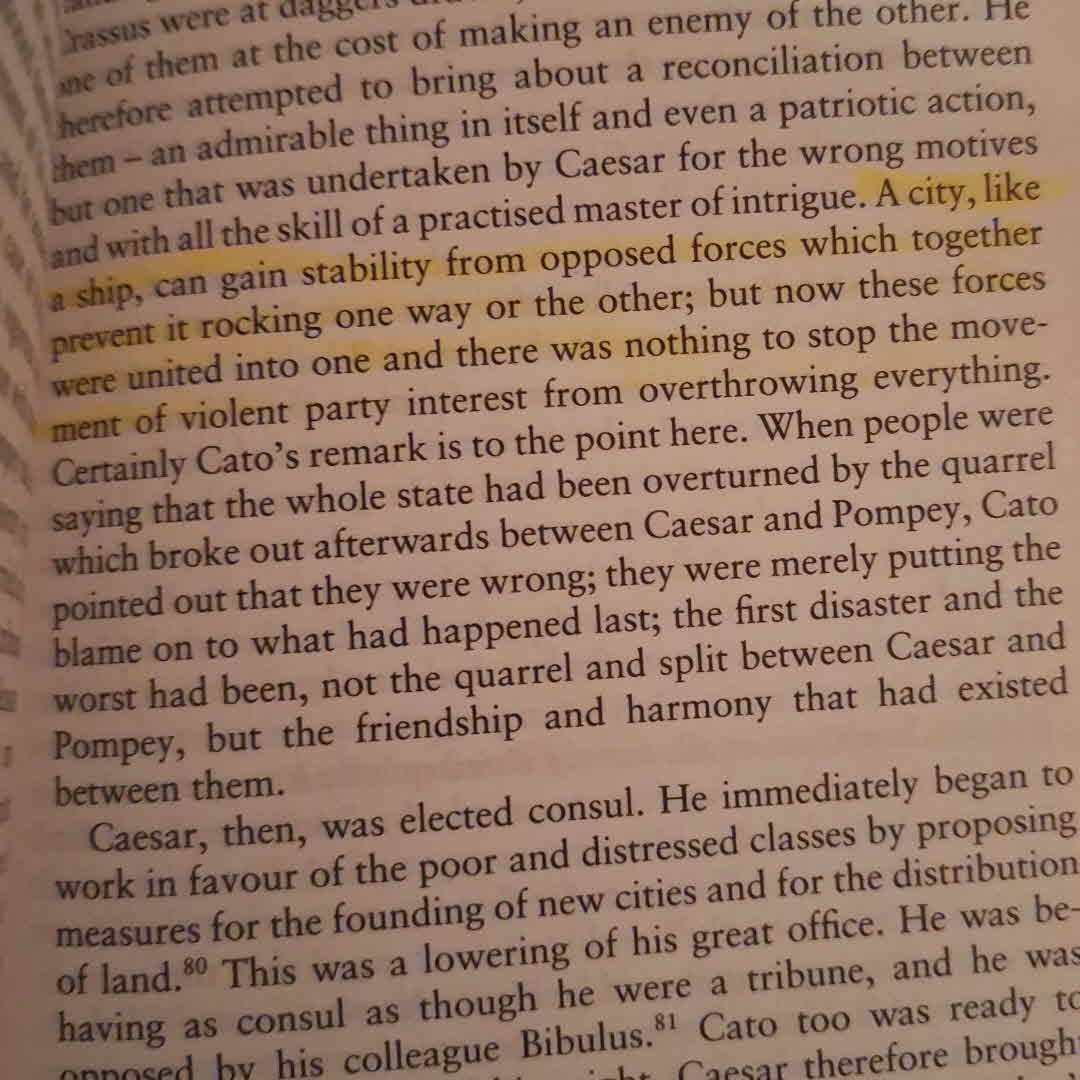
"A city, like a ship, can gain stability from opposed forces which together prevent it rocking one way or the other; but now these forces were united into one and there was nothing to stop the movement of violent party interest from overthrowing everything."
-Plutarch, "Fall of the Roman Republic"
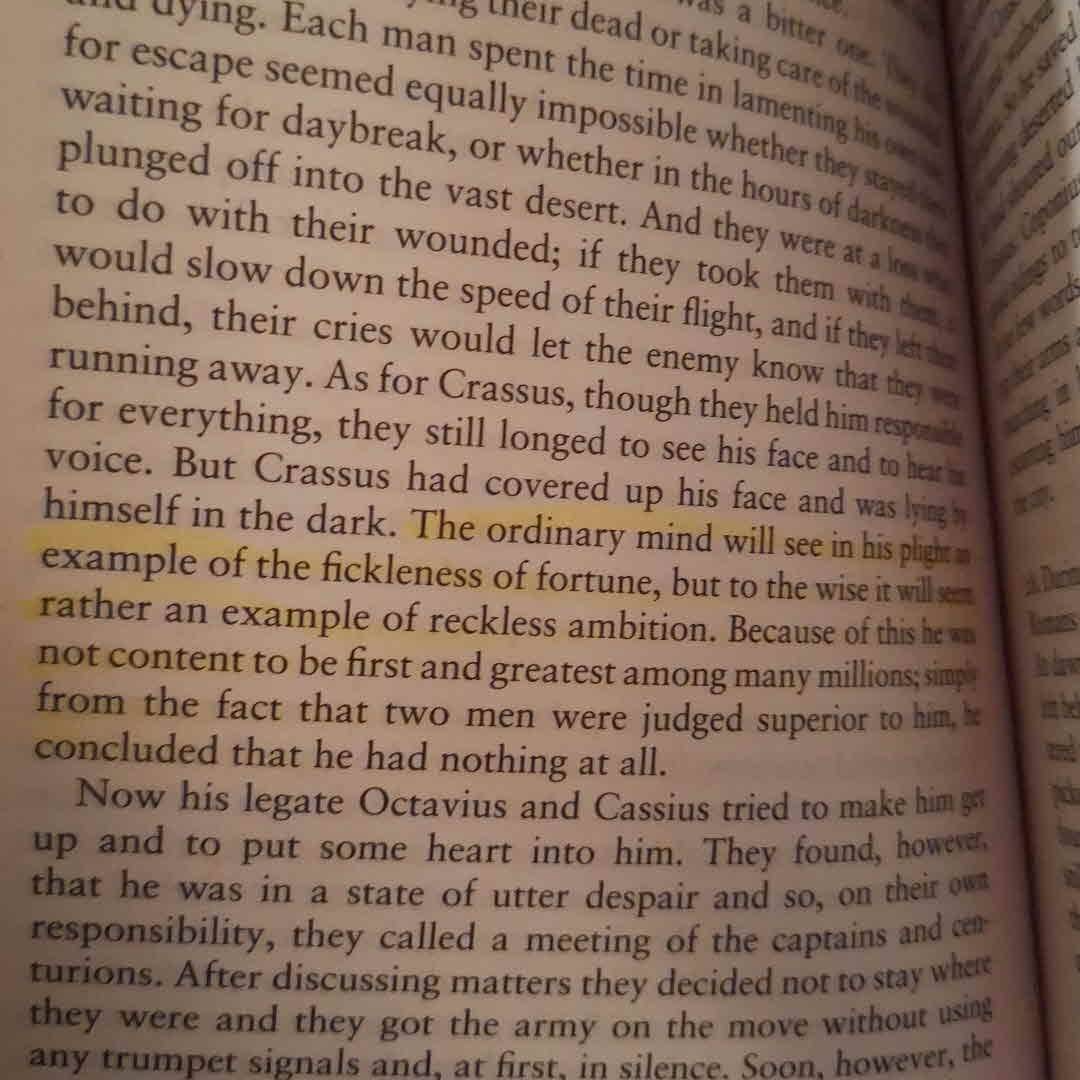
"The ordinary mind will see in his plight an example of the fickleness of fortune, but to the wise it will seem rather an example of reckless ambition. Because of this he was not content to be first and greatest among many millions; simply from the fact that two men were judged superior to him, he concluded that he had nothing at all."
-Plutarch, "Fall of the Roman Republic"
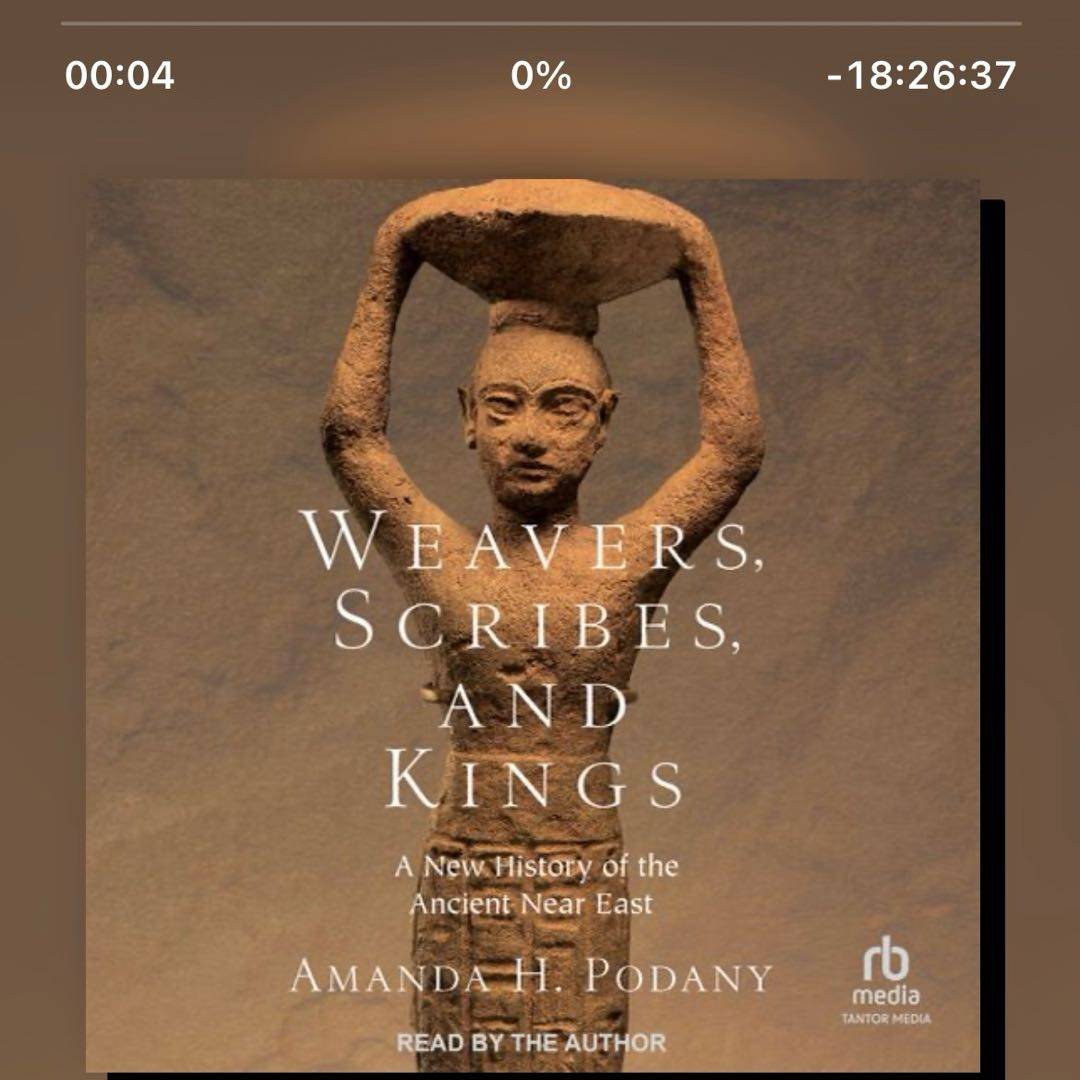
Tons of good info!